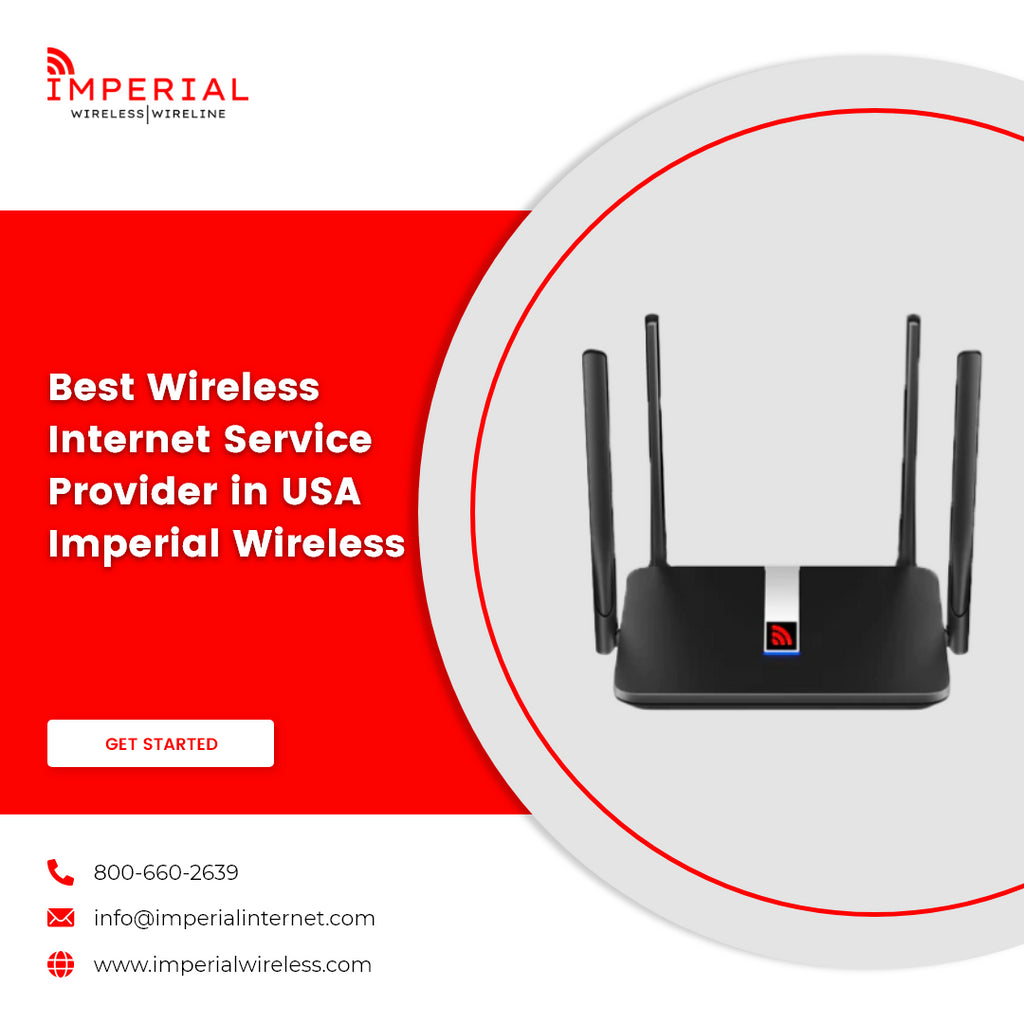Which Is Better, A Broadband Or Wireless Internet Connection
Posted by HASSAN JAVAID

In the past, people used to access the web connection through dial-ups and modems, and as we all know, technology has greatly evolved since then. Every day, we witness new inventions and innovations. Like other industries, the telecommunications sector has made leaps and bounds. Previously, a wireless internet connection didn't use to match the speed of a broadband connection. People used to prefer broadband connections as they were fast and provided a decent browsing experience.
What exactly is broadband?
Broadband offers the fastest connections currently available, which makes it the most used kind of service for residential use. Broadband (short for "broad bandwidth") is a high-speed connection that's always "on." There are various kinds of connections, including DSL, wire-free, and 4G/5G LTE.
Broadband was first introduced in the mid and late 1990s, replacing older kinds of connections like dial-up, which relied on the audible frequency of phone lines. Since broadband operates on a different frequency from your phone line and is always connected, it makes it much easier to remain connected.
Because a broadband connection is fast, there will be no problem downloading large files, streaming 4K videos online, or gaming online.
How does it work?
Contrary to dial-up connections, broadband connections use a separate line to transmit data. DSL is based on copper phone wires, while cable makes use of identical coaxial cables used by your TV. Fiber utilizes specialized fiber-optic cables and wire-free options, such as satellite or 4G/5G.
These types of connections have different frequencies that offer an array of speeds. A service provider (ISP) makes use of equipment, including computers, cable routers, routers, and other equipment, that connects your home to the web.
What are the different kinds of broadband?
Four main kinds of broadband connections are currently available. Imperial Wireless offers broadband, fiber, and 5G based on your needs.
DSL
DSL (Digital Subscriber Line) was one of the first broadband services invented and is still in use today. DSL makes use of the same copper cable as the telephone line to provide high-speed data connections. The DSL signal utilizes different frequencies from the phone lines, making it possible to utilize your phone. The use of a modem for the phone connected to your PC allows DSL to gain more "bandwidth," which increases speeds. DSL speeds can reach up to 100 Mbps.
Pair bonding
Pair bonding is an option for certain DSL connections, which typically provide more bandwidth as compared to single-line DSL service. In the typical DSL service, there's only one copper wire pair that is used to provide service. Pair bonding is a method of ensuring that two pairs of copper wires (four separate wires) are used, thus making it possible to double the speed of your net. With the pair bonding method, net speeds could be as high as 140 Mbps.
Fiber
Fiber utilizes a specific type of fiber-optic cable, which permits data to be transmitted in waves of light across millions of tiny clear fiber strands. Since light is the most efficient method of transmitting data, it is quick and provides the highest quality and most reliable connection. It can provide connection speeds up to 1 GB/s. Fiber is a rapidly growing technology that will soon be more widely accessible.
Cable
Cable is nearly as fast as DSL. It utilizes the same coaxial cables used to transmit TV services in order to transmit the fastest connection. With a modem, it is possible to connect these cables and enjoy fast and uninterrupted data connections. Speeds for cable lines can reach as high as 940 Mbps for downloading and up to 50 Mbps for upload speeds.
What is wireless Internet?
Wire-free connectivity is a type of service that offers connectivity to users and businesses via wire-free communication networks. It is a wireless Internet service that is provided through a service provider (WISP). In general, access is provided via satellite signals or radio waves.
Wire-free service can also mean accessing by using Wi-Fi in an office, home, or local network.
Comparison
Broadband is an always-on connection that has high speed. Whereas wire-free technology uses radio waves to connect to the router and other devices. With broadband, you can connect 3–4 devices by using a LAN cable. On the other hand, with wire -free technology, you can connect 10 devices or more, depending on your router. There are also no password restrictions with a broadband connection. Anyone can connect the cable and get access to the internet. On the contrary, routers are mostly password-protected. Therefore, access to the internet could be limited.
Total Data Plans
Whether you want broadband, fiber, or wire-free services, we've got it. While our philosophy might be somewhat unique in the field of telecoms, we believe the quality of customer service is as important as the performance of your connection. We will be happy to be a part of your company and will work to ensure satisfaction every day of the year.
At Imperial Wireless we offer you a variety of services, including the fastest and lowest-latency fixed wire free currently available, as well as Layer 2 point-to-point (P2P) services and MPLS.


